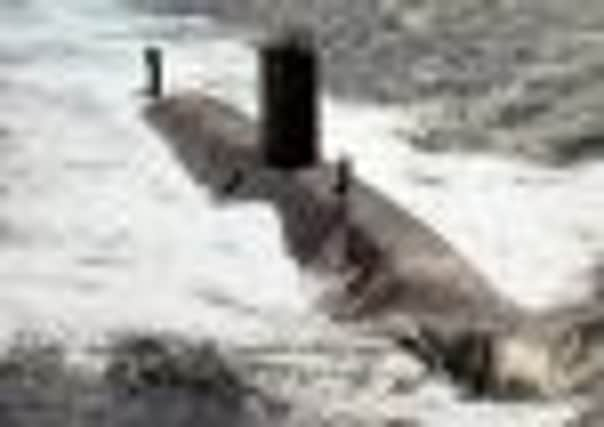Fox firm over £43m monthly bill for Libya


Taxpayers are expected to face a total bill of around £260m if the Nato-led mission lasts six months, according to figures released by the Ministry of Defence (MoD).
The projected total consists of £120m mounting the multinational United Nations-endorsed operation and £140m-worth of missiles and other munitions.
Advertisement
Hide AdAdvertisement
Hide AdIt is significantly higher than the eight-figure sum suggested by Chancellor George Osborne at the time of the opening salvoes in March – when military strategists expected a swifter result.
Dr Fox said the cost, being met from Treasury reserves, was inflated by the need to use precision weaponry in air strikes against Muammar Gaddafi’s forces in order to minimise innocent casualties.
“If we are going to fight operations in the future based on minimising civilian casualties there is clearly a financial price to pay,” he said.
“But I think that shows that we are on the moral high ground and that we place a higher value on human life than the Gaddafi regime does.”
Advertisement
Hide AdAdvertisement
Hide AdDetails of the cost were released, however, as Gaddafi seized on recent civilian deaths to brand the military alliance “murderers”.
At the weekend, the Alliance blamed a “weapons system failure” for a bomb or missile landing in a residential area of the capital Tripoli and expressed regret at the death toll.
The dictator spoke out instead about an air strike this week on the home of a close aide, which was reported to have killed 19 civilians including several children.
Nato said it regretted any civilian casualties but insisted that the air strike was carried out on a residence used as a command and control centre.
Advertisement
Hide AdAdvertisement
Hide AdBreaking recent radio silence, a defiant Gaddafi also said the “Crusader war” would “rebound against you and against the world with destruction, desolation and terrorism”.
Earlier this month, Nato extended the duration of the multi-nation campaign against forces loyal to Muammar Gaddafi for another 90 days beyond the original cut-off of June 27.
Labour had called for the costs to be published after Treasury Chief Secretary Danny Alexander conceded at the weekend that they were expected to be far higher than initially suggested.
Asked whether the Prime Minister felt that the Libya operation was delivering value for money for the taxpayer, Mr Cameron’s official spokesman said: “We think it was the right thing to do to take action in Libya and we think that, as a result of our action, we have saved thousands of lives.”
Advertisement
Hide AdAdvertisement
Hide AdRAF fighter planes, using a southern Italian base, flew their first sorties on March 19, two days after the United Nations Security Council authorised “all necessary measures” to protect Libyan civilians from Gaddafi’s brutal repression of a popular uprising.
Military chiefs have publicly expressed doubts about the UK’s capacity to continue the Libya campaign at the same intensity – prompting a dressing down by Mr Cameron.
Former Chief of the Defence Staff Air Chief Marshal Lord Stirrup said the campaign in Libya could be afforded. “It is a large sum of money when you put it like that,” he told BBC Radio 4’s World at One.
“But in the context of the overall GDP of the UK, of the overall budget, and indeed of the deficit which we are trying to eliminate, this really is very small beer.”
Advertisement
Hide AdAdvertisement
Hide AdLabour Shadow Defence Secretary Jim Murphy said: “We want the Government to be clearer on what stresses and strains operations in Libya are making on the core defence budget, and whether our standing commitments are or will be affected by the ongoing conflict.
“In particular we will ensure the Government keeps to their guarantees that the mission in Afghanistan will not be affected. That is absolutely vital.
“Following the concerns of the service chiefs, we also need to know what contingency plans are being made to ensure that our armed forces are sufficiently equipped and that the conflict is sustainable beyond September.
“Being clear on the endgame – how and when our forces will return home – must be the Government’s priority.”